Following is the method I wrote for merging two Linked-Lists (MergeTwoLists(ListNode list1, ListNode list2)). Following is the entire program:
using System;
using System.Collections.Generic;
using System.Collections;
using System.Linq;
using System.Text;
using System.Threading.Tasks;
namespace LinkedList
{
public class ListNode
{
public int val;
public ListNode next;
public ListNode(int val = 0, ListNode next = null)
{
this.val = val;
this.next = next;
}
}
internal class Program
{
static void Main(string[] args)
{
ListNode list1= new ListNode(1, new ListNode(2, new ListNode(4, null)));//Heap -> list1 is a pointer to an object on the heap (list1 pointer itself is on the stack).
ListNode list2 = new ListNode(1, new ListNode(3, new ListNode(4, null)));//Heap -> list2 is a pointer to an object on the heap (list2 pointer itself is on the stack).
ListNode list3 = MergeTwoLists(list1,list2);//list3 points to Heap. list3 is also a pointer to an object on the heap. And initially, that object on Heap = null. The list3 pointer (variable), is itself on the stack.
}
public static ListNode MergeTwoLists(ListNode list1, ListNode list2) //pass by Reference
{
if (list1 == null)
return list2;
else if (list2 == null)
return list1;
ListNode l3 = new ListNode(0,null),l1=list1,l2=list2;
ListNode l4 = l3;
while (list1 != null && list2 != null)//list1 = 1->2->4->null
{ //list2 = 1->3->4->null
if (list1.val <= list2.val)
{
l4.next = list1;
list1 = list1.next;//when we are first time in the while loop, list1 now = 2->4->null but l1 (which = list1) still = 1->2->4->null!!
}
else
{
l4.next = list2;
list2 = list2.next;
}
l4 = l4.next;
}
l4.next=list1==null?list2:list1;
return l3.next;
}
}
}
As shown above (as commented above), when we enter the while loop in the method MergeTwoLists the first time - list1 = list1.next. And list1 now = 2->4->null (list1 was 1->2->4->null originally). But, l1 = list1, so the changes in list1 should be reflected in l1. And l1 should now also = 2->4->null (initially, both l1 = list1 = 1->2->4->null).
But, l1 now still = 1->2->4->null whereas list1 now = 2->4->null. Why is it so? Am I missing something?
Diagrammatically, what happens in the Heap and Stack (in my opinion):

So, why this incompatible behavior that I am seeing? I will be grateful, if you can tell me what is happening in the HEAP and STACK, exactly.

